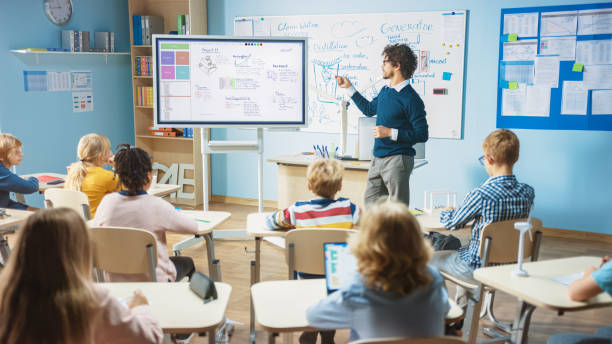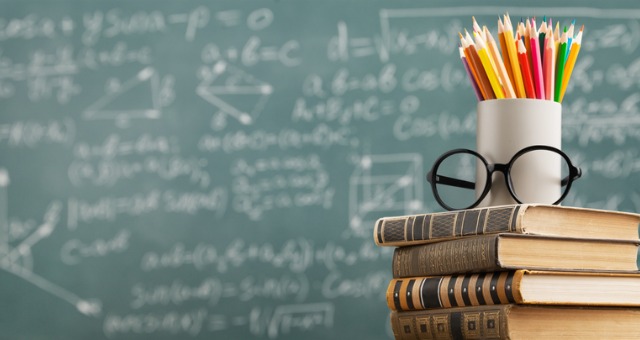Discover the Best Primary Science Tuition Singapore for Your Learning Journey
Discover the Best Primary Science Tuition Singapore for Your Learning Journey
Blog Article
Checking Out the Different Mentor Methods in Primary Scientific Research Education Today
Inquiry-based discovering, hands-on experiments, and the assimilation of modern technology are redefining exactly how instructors involve young minds. Additionally, collaborative strategies and separated instruction are being used to provide to the varied demands of students, enhancing both interaction and understanding.
Inquiry-Based Knowing
Inquiry-Based Understanding (IBL) is a pedagogical strategy that encourages pupils to discover scientific concepts through doubting, investigation, and hands-on trial and error. This method emphasizes the role of pupils as active individuals in their understanding, promoting critical thinking and analytical abilities. By involving with real-world questions, students come to be motivated and curious, which enhances their understanding of clinical principles.
In IBL, instructors act as facilitators, assisting pupils as they browse their inquiries rather than providing details straight. This student-centered approach permits distinction, suiting various learning speeds and designs. Trainees establish abilities in creating theories, developing experiments, and evaluating information, which are critical for scientific literacy.
Furthermore, IBL fosters cooperation amongst pupils, urging them to share findings and concepts. This cumulative query advertises social skills and a sense of neighborhood within the class. Additionally, the procedure of questions motivates strength, as trainees find out to welcome failing as a tipping stone toward understanding.
Hands-On Experiments
Hands-on experiments are an important element of efficient scientific research education, matching the concepts of inquiry-based knowing. These experiments permit students to engage straight with clinical principles, fostering a much deeper understanding through experiential understanding. By controling materials and observing results, young learners can grasp abstract concepts in tangible means.
Such tasks advertise critical thinking and analytic abilities, as trainees hypothesize outcomes, conduct experiments, and examine outcomes. This procedure urges them to ask inquiries, fine-tune their understanding, and develop a clinical mindset. Hands-on experiments can be tailored to varied learning designs, making sure that all students have the possibility to engage meaningfully with the material.
Furthermore, hands-on experiments commonly urge partnership among peers, promoting teamwork and communication skills. Operating in teams makes it possible for students to share concepts, talk about searchings for, and find out from each other, which improves their total educational experience.
Incorporating hands-on experiments into the primary science curriculum not only improves the discovering setting yet additionally grows a lifelong rate of interest in science. By actively taking part in their education and learning, trainees are extra likely to develop an interest for scientific inquiry that extends beyond the class.

Modern Technology Assimilation
Integrating innovation into main science education and learning has actually come to be significantly essential in promoting trainee involvement and boosting learning end results. Making use of electronic devices, such as interactive simulations, digital labs, and instructional software program, offers students with opportunities to explore scientific ideas in cutting-edge means. These resources assist in a deeper understanding of complex topics by permitting students to imagine and adjust variables that would certainly be impractical in a conventional classroom setup.
In addition, modern technology integration motivates personalized finding out experiences. Pupils can advance at their very own speed, revisiting tough concepts via multimedia sources, which accommodate various understanding styles. This flexibility not just supports private growth but also grows a feeling of autonomy in learners.
In addition, innovation serves as a bridge to real-world science, connecting students with current research and expert payments. Accessibility to clinical journals and online databases widens trainees' viewpoints on clinical query and fosters important believing skills.
Collaborative Understanding
Collaborative discovering plays a vital role in main science education by cultivating teamwork and interaction skills among pupils. This method urges students to work together, share expertise, and participate in problem-solving, which enhances their understanding of clinical principles. By joining group activities, trainees learn to express their concepts, listen to diverse viewpoints, and bargain remedies, every one of which are necessary abilities in both real-world and scholastic contexts.

Research suggests that collective understanding can cause enhanced motivation and engagement in scientific research subjects, as trainees locate satisfaction in shared experiences (primary science tuition Singapore). Additionally, this approach prepares pupils for future collaborative undertakings, furnishing them with the abilities required for effective synergy in college and professional environments. Inevitably, embracing collaborative knowing in main scientific research education and learning can considerably enhance the learning experience and advertise a much deeper understanding of clinical questions
Set Apart Guideline

Set apart guideline can materialize in different methods, such try this out as differing the content, procedures, or items of knowing. Educators might use tiered tasks that provide differing levels of intricacy, enabling pupils to work at their corresponding readiness levels. Furthermore, flexible grouping techniques can help with partnership among pupils with various capabilities, fostering peer discovering.
Analysis plays an essential role in this strategy, as it educates guideline and helps educators recognize each student's unique demands. Formative analyses, such as observations and tests, can guide educators in changing their strategies to enhance discovering results. primary science tuition Singapore. Inevitably, by applying set apart guideline in primary science education and learning, teachers can grow a much more fair and reliable discovering setting, encouraging all students to reach their full potential in understanding scientific sensations
Final Thought
In recap, the varied mentor approaches in primary scientific research education and learning, including inquiry-based learning, hands-on experiments, innovation combination, joint discovering, and set apart instruction, jointly add to an extra efficient learning atmosphere. These techniques promote crucial reasoning, analytical skills, and a much deeper understanding of clinical concepts. By applying these techniques, educators can produce engaging and supportive class that deal with the diverse demands of trainees, eventually cultivating a lifelong rate of interest in scientific research and improving scholastic accomplishment.
Inquiry-Based Learning (IBL) is a pedagogical strategy that encourages students to explore clinical ideas through wondering about, investigation, and hands-on experimentation.Joint discovering plays a crucial function in main science education and learning by fostering team effort and interaction skills amongst students.Research suggests that collaborative learning can lead to increased inspiration and engagement in science topics, as trainees locate pleasure in shared experiences.In fostering an inclusive knowing environment, differentiated direction arises as a vital method to fit the varied needs and capabilities of students in main science education. Ultimately, by carrying out site link distinguished guideline in primary science education and learning, instructors can cultivate a more effective and fair learning atmosphere, encouraging all trainees to reach their complete capacity in check that understanding clinical sensations.
Report this page